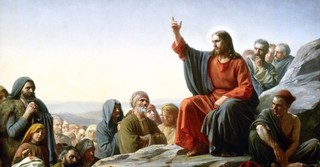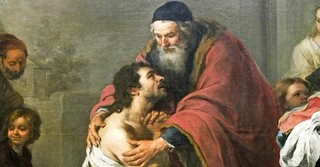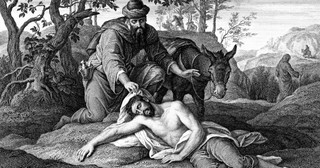The Tower of Babel - Bible Story
Share

The Tower of Babel Bible story is found in chapter 11 of Genesis in just a few verses. This is a summary of the Biblical account of the Tower of Babel. You can read more in-depth Bible verses from the Scripture below and use the articles and videos to understand the meaning behind this teachable event in the Bible.
The descendants of Noah lived in the area of Mesopotamia in Babylon. They settled in a land named Shinar. The population was growing, and they all spoke one language. The people decided to build a tall, proud symbol of how great they had made their nation. The Babylonians wanted a tower that would "reach to the heavens" so they could be like God and would not need Him. They began to construct a great ziggurat.
God did not like the pride and arrogance in the people's hearts. God caused the people to suddenly speak different languages so they could not communicate and work together to build the tower. This caused the people to scatter across the land. The tower was named The Tower of Babel because the word Babel means confusion. This story is a powerful reminder of how important it is to obey God's Word and not think we can build a successful but godless life on our own!
FAQ's: The Tower of Babel in the Bible
What is the story of the Tower of Babel?
The Tower of Babel is a biblical narrative found in Genesis 11:1-9. According to the story, after the Flood, humanity spoke a common language and settled in the land of Shinar. They decided to build a great city and a tower that reached the heavens to make a name for themselves.
Why did God destroy the Tower of Babel?
God decided to intervene because of human pride and disobedience. The people aimed to reach the heavens independently, challenging God's authority. To prevent this rebellion, God confused their language, causing them to speak different tongues and scattering them across the earth.
Where is the Tower of Babel located today?
The exact location of the Tower of Babel remains uncertain, as described in ancient biblical texts. While some theories suggest it could be in the vicinity of ancient Mesopotamia, no definitive archaeological evidence has been found to pinpoint its exact location.
What is the main message of the Tower of Babel?
The Tower of Babel narrative conveys important messages about human pride, disobedience, and the consequences of challenging divine authority. It teaches humility and emphasizes the need for obedience to God's will rather than pursuing self-glorification and independence.
Why didn't God like the Tower of Babel?
God was displeased with the Tower of Babel because it symbolized human arrogance and rebellion. The people sought to build a tower to the heavens to make a name for themselves, indicating a desire for self-sufficiency and independence from God. God's response was to scatter them and confuse their language, humbling humanity and reasserting divine authority.
What was the Tower of Babel?
As Nimrod began his reign, he and his followers had one overriding goal for their new territory; they wanted to ensure the security of their community by building a prestigious landmark to make a name for themselves. “Then they said, ‘Come, let us build ourselves a city, with a tower that reaches to the heavens, so that we may make a name for ourselves; otherwise we will be scattered over the face of the whole earth” (Genesis 11:4).
The structure—a tower made from man-made building materials—would be a symbol of their power and self-sufficiency, and some historians believe that Nimrod had an additional motive for wanting to build the tower of Babel.
In What Was the Sin That Condemned the Tower of Babel? Alyssa Roat offers a quote that gives insight into Nimrod’s frame of mind. “The ancient historian Josephus states of Nimrod, ‘He also said he would be revenged on God if he should have a mind to drown the world again; for that he would build a tower too high for the waters to be able to reach and that he would avenge himself on God for destroying their forefathers (Antiquities of the Jews, Book 1, Chapter 4).”
God saw that the people were working together toward a common goal. Unfortunately, the goal they were working toward was steeped in arrogance and in direct opposition to God’s command to multiply and “fill the earth” (Genesis 9:1).
In their attempt to maintain unity and create a name for themselves, God’s people rebelled against God’s sovereign authority and embraced their self-sufficiency. They felt they didn’t need God to rule over them—they could rule themselves and reach the heavens on their terms, with their own hands, by their means.
God’s justice and His grace could not allow this treachery to continue. “So the Lord scattered them from there over all the earth, and they stopped building the city. That is why it was called Babel—because there the Lord confused the language of the whole world. From there the Lord scattered them over the face of the whole earth” (Genesis 11:8-9)
The following are excerpts from the International Standard Bible Encyclopedia:
Location of the Tower of Babel:
There has been much difference of opinion as to the geographical position of the Tower of Babel. Following the tradition handed down by the Jews and Arabs, most writers on the subject have identified it with the great Temple of Nebo in the city of Borsippa, now called the Birs-Nimroud (explained as a corruption of Birj Nimroud, "Tower of Nimrod"). This building, however, notwithstanding its importance, was to all appearance never regarded by the Babylonians as the Tower of Babel, for the very good reason that it was not situated in Babylon, but in Borsippa, which, though called, in later times, "the second Babylon," was naturally not the original city of that name. The erection regarded by the Babylonians as the great Tower of their ancient city was E-temen-ana-ki, "the Temple of the foundation of heaven and earth," called by Nabopolassar and Nebuchadrezzar ziqqurat Babili, "the Tower of Babylon"--the world-renowned temple dedicated to Merodach and his consort Zer- panitum, Babylon's chief deities.
The Builders of the Tower:
The Bible record does not state who the people were who journeyed in the East and built the city and the Tower. The indefinite "they" might be taken to mean whatever people were there at the time the record was written, and probably presupposes that the reader would certainly know. As the Tower of Babel bears, in the native inscriptions, a Sumero-Akkadian name, it may be supposed that the builders referred to belonged to that race.
The Meaning of "Babel":
The place where they built the Tower was called Babylon on account of the confusion of languages. Here we have the statement again as in Ge that the meaning of Babel is "confusion." This, as is well known, is based upon the purely Hebrew etymological law, which makes balal, "to confuse," or "mingle," assume a reduplicate form; but as far as the cuneiform inscriptions, which are now very numerous, give us information, Babel, from baldlu, "to mingle" (the root in question), was an impossibility. But on the Babylonian side, that the rendering of the name as Bab-ili (-ilani), "gate of god" ("of the gods") was a folk-etymology, is undoubted, notwithstanding that the Sumero-Akkadian form Ka-dingira, with the same meaning, is far from rare. It is noteworthy, however, that one of the forms used by Nebuchadrezzar is Babilam, with the mimmation or "emming," which is a characteristic of the Babylonian language; moreover, a place-name Babalam also occurs, which may be a still earlier, and perhaps the original, form. Notwithstanding that one would like to see in Babalam, "the place of bringing together," and in Babilam, "the bringer together," the termination -am would seem to be an insurmountable difficulty.
The Ultimate Destruction of the Tower:
The city's building would have been stopped when the confusion of tongues took place, which is natural- the departure of the greater part of the inhabitants made this inevitable. When the population increased again, the city's building continued, making Babylon the greatest city in the then-known world. The Tower, despite what had been said about its destruction, remained. When its condition became ruinous from time to time, some energetic Babylonian king would restore it. Alexander and Philip of Macedon began clearing away the rubbish to rebuild the great temple of Bclus (Bel-Merodach) connected with it. There is hardly any doubt that the Tower would have been restored likewise, but the untimely death of the former and the deficient mental caliber of the latter for ruling a great empire put an end to the work. The Tower, therefore, remained unrepaired--"The tower was exceedingly tall. The third part of it sank into the ground, a second third was burned down, and the remaining third was standing until the time of the destruction of Babylon" (Rabbi Yehanan, Sanhedhrin, 109, 1)
Significance of the Tower of Babel Story
Tucked away in the book of Genesis is the story of a massive structure most Christians identify as The Tower of Babel. The scriptural account explaining why God’s people built this tower is short and poignant. Rebellious and prideful mankind wanted to do their own thing, but God intervened to stop them, and all the world's diverse languages can be traced back to the fallout from that fateful event.
But when we dig deeper into scripture, treasure can be found amid the ruins. Relevant lessons can be excavated from the wreckage of that tower and used as building blocks for modern Christian living.
A World Fallen Into Sin
In the beginning, God created Adam and Eve, and everything was perfect. But when sin entered the world through that first couple, mankind began a downward spiral into depravity that would eventually lead them to an awareness of their need for a savior.
As Adam and Eve began to “be fruitful and multiply” following God’s command (Genesis 1:28), sin continued to abound. 1000 years later, sin had so overtaken God’s creation that He decided to purge humanity with a worldwide flood—sparing only one man, his family, and the animals. “Noah was a righteous man, blameless among the people of his time, and he walked faithfully with God. Noah had three sons: Shem, Ham and Japheth” (Genesis 5:10).
Even after God’s flood wiped out the majority of wickedness from the earth, the inherited seed of sin began to corrupt Noah’s descendants. 1000 years after the flood, Noah’s rebellious great-grandson Nimrod became the first leader of the post-flood world. Nimrod established his kingdom by founding a city on the plain in Shinar, which would later be called Babel or Babylon (Genesis 10:10).
Many pseudepigraphical and historical writings describe Nimrod as a warrior of great stature and supernatural strength. Still, similar reports also describe Nimrod as a self-absorbed tyrant plagued by bitterness over the flood and God’s judgment.
What We Can Learn
In 10 Things Christians Should Know about the Tower of Babel, Hope Bolinger observes, "Although we may encounter this story in Sunday school, we don’t often hear about it from the pulpit or in our morning devotionals. But we can often see ourselves in the narrative, especially today.” Believers must take an introspective look for the tale-tell signs of this kind of sin within the Church and ourselves.
It’s easy to read stories from the Old Testament and pass judgment on the waywardness of God’s people, thinking that we today are more loyal to God and would never sin in the ways the people at Babel did. But are we truly immune to the temptations they faced? Our country was founded upon the noble pursuit of independence, honor, and autonomy. But while these noteworthy traits are bragging points for our country, they have no place in the Church or the Kingdom of God. Why?
As children of God and citizens of His Kingdom, we are called to a submissive relationship with our Lord and Savior—our King. Sin takes over whenever we build our churches or salvation upon any other foundation. When exercised apart from God’s sovereign rule, independence becomes arrogance—honor becomes pride—and autonomy becomes idolatry.
When we allow politics to bleed over into the structure of the Church or the foundation of our salvation, it can become easy to forget where our true allegiance rests. And it makes it much easier to band together with groups of like-minded disgruntled “citizens” to wage war against and declare independence from the very people our King came to seek and save (Luke 19:10).
Just like the people of Babel felt justified in and empowered by their pursuit of self-engineered excellence, an autonomous church—or Christian—can be deceived into believing their own efforts will help them reach “the heavens.” But the Bible is clear that the only way to reach God is through the Lord Jesus Christ. Our reliance on Him for our salvation and the building of His Church is essential (Ephesians 1:22, John 14:6, John 3:5).
5 Interesting Facts about the Tower of Babel
The Trinity was represented in the Scriptural account of the tower—In Genesis 11, we see God’s initial reaction to the building of Babel’s tower. “But the Lord came down to see the city and the tower the people were building. The Lord said, ‘If as one people speaking the same language, they have begun to do this, then nothing they plan to do will be impossible for them. Come, let US go down and confuse their language so they will not understand each other’” (Genesis 11:5-7, emphasis added). When the Lord says, “Come, let us go down …” this is one of the Bible’s first hints at the reality of our triune God.
Noah was still alive when the Tower of Babel was built—According to Scripture, Noah lived 350 years after the flood and a total of 950 years (Genesis 9:28-29). This means he would have been alive during his great-grandson Nimrod’s rise to power and the building of the tower.
The tower was built in Iraq—The tower of Babel was built on a plain in the region of Shinar, located in ancient Mesopotamia on the eastern bank of the Euphrates River—about thirty miles from modern-day Baghdad.
The tower's structure is key to identifying Babel’s actual sin—The fact that Noah’s descendants chose to build a ziggurat-style tower, showed that they had allowed paganism to invade their heritage of faith in the One True God. Ziggurats were structures intended to provide stairways from the heavens to earth to provide a convenient means for “the gods” to come down and visit men. But Scripture is clear that man has no means to provide a way for ourselves to reach God, nor do we have any authority to summon God to ourselves. In John chapter 10 Jesus addresses those who try to reach God on their own terms “Very truly I tell you Pharisees, anyone who does not enter the sheep pen by the gate, but climbs in by some other way, is a thief and a robber. The one who enters by the gate is the shepherd of the sheep. The gatekeeper opens the gate for him, and the sheep listen to his voice. He calls his own sheep by name and leads them out.”
Modern-day towers of Babel are still being constructed—As humanity continues to go here and there and knowledge increases (Daniel 12:4), mankind continues to reach for the heavens and God, on their own terms, by their own means, using their own skill. One example of this may be CERN’s LHC. In an attempt to locate the Higgs boson particle, also known as the “God particle,” which scientists believe will unlock the “mystery” of life, the European Organization for Nuclear Research (CERN) built the world's largest and most powerful particle accelerator, the Large Hadron Collider. "Out of this door might come something, or we might send something through it," said Sergio Bertolucci, who is the Director for Research and Scientific Computing at CERN.
While people under God’s authority can use science and technology for great purposes, now more than ever, Christians must cling to the One True God for discernment and trust in His Son Jesus as the only “sheep gate” to the Father.
For more information about the Tower of Babel, check out Clarence L. Haynes Jr.’s Where Was the Tower of Babel and What Was Its Significance?

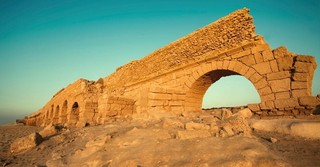
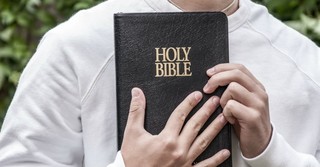
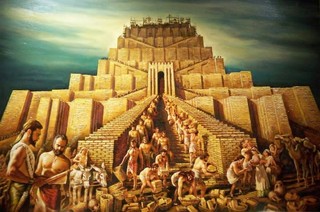
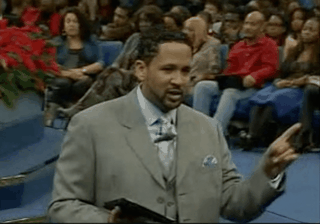
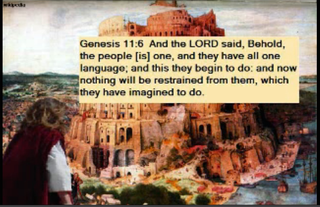

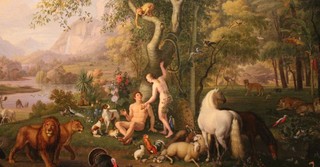
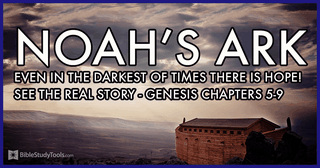
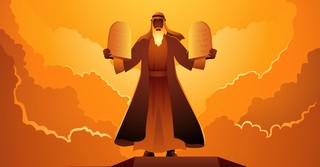
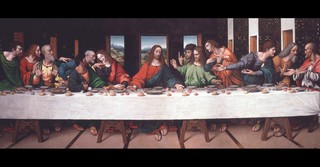

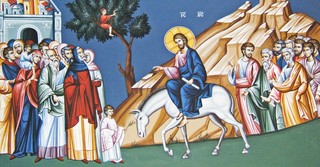
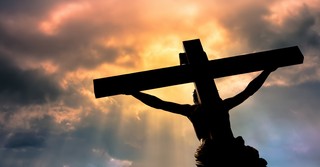
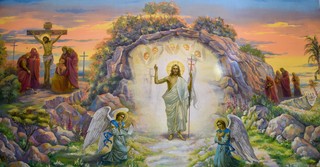
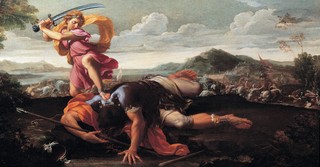
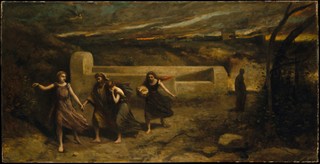
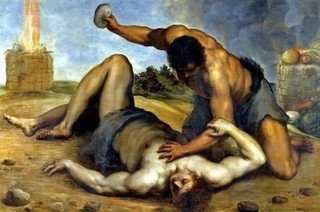
.800w.tn.jpg)
